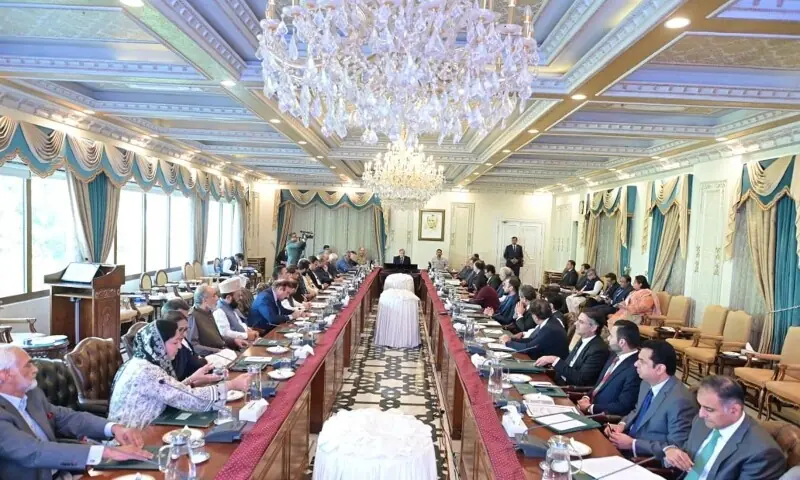On Thursday, the federal cabinet formally approved a historic strategic bilateral defense with Saudi Arabia, a move called Prime Minister Shahbaz Sharif a “historic milestone” in bilateral relations.
The cabinet chaired by Sharif reviewed the recently signed agreement and endorsed its strategic importance while changing regional dynamics. The agreement is ready to deepen defense cooperation, joint military training, intelligence sharing, and wider security cooperation between the two long -time allies.
“This agreement is not merely symbolic, it begins a new era of viable cooperation between our two brotherly countries,” Sharif told members. He confirmed Pakistan’s commitment to strengthen relations with the Gulf states.
Cabinet members welcomed the deal, praising the leadership of the two countries, and noted that the agreement expects them to open new strategic coordination channels between their defense agencies.
During the meeting, Sharif also clarified Islamabad’s lasting relations with China, and called it Pakistan’s “most trusted friend”. He thanked China’s constant support and said, “China stands in Pakistan in every crisis. We will never forget it.”
Sharif also gave a letter to the cabinet at his meeting with former US President Donald Trump in Washington, attended by Chief of Army Staff Field Marshal Asim Munir. Discussions focused on bilateral relations, trade, and counter -terrorism cooperation. The Prime Minister noted that during his presidency, Trump had played his role in promoting tensions between Pakistan and India and he had warned Israel that “the West Bank could never be separated.” Sharif added that Pakistan has played an active and principled role in efforts to restore peace in Gaza.
He also updated the cabinet on recent government visits to Saudi Arabia, Qatar, Malaysia, and the UN General Assembly in New York, which called for Pakistan’s more active foreign policy to increase international presence and attract investment. The meeting mentions a change in economic diplomacy and strategic partnerships, especially in the Middle East and Asia Pacific areas.
In other decisions, the cabinet approved the principle of legislation for the establishment of the WAPDA Security Force, which is a special institution, which is the task of protecting important infrastructure projects, including large dams and hydroelectric plants.
The proposed WAPDA Security Force Act, 2025, will formulate security arrangements for national water and electricity assets amid the increasing risk of important infrastructure. The force will operate under the Water and Power Development Authority (WAPDA) in harmony with provincial and federal law enforcement agencies.
In another move, the cabinet approved a donation of 15 non -operational aircraft, including eight cesna and seven flacker aircraft, including the department for education and commemorative agencies. After unsuccessful attempts to auction the elderly fleet, four operational back craft aircraft will be in service for the aircraft and the air survey missions.
Addressing the recent rise in terrorist incidents, especially along the western border, Sharif condemned the attacks by militants entering Afghanistan and vowed to “strong decisions” to protect national security. He paid tribute to two Army officers, Lieutenant Colonel Junaid and Major Sabyaton Hadder in recent operations, saying that they were impressed with their courage after meeting their family. He called for a united national response to terrorism, saying, “We can no longer afford to wait. The time for decisive action is now.”
The cabinet postponed the proposed amendment to alternative drugs and health products (enrollment) rules, 2014, and cited a special committee to further review them. In addition, the Cabinet October 2 endorsed the Economic Coordination Committee (ECC) meeting hero and the Cabinet Committee on Legislative Affairs from September 22.

